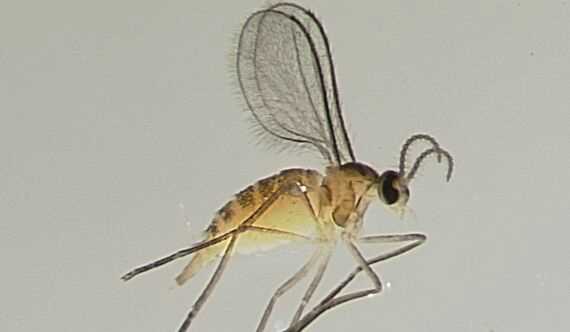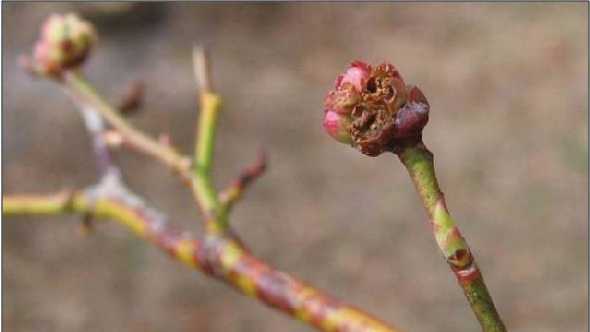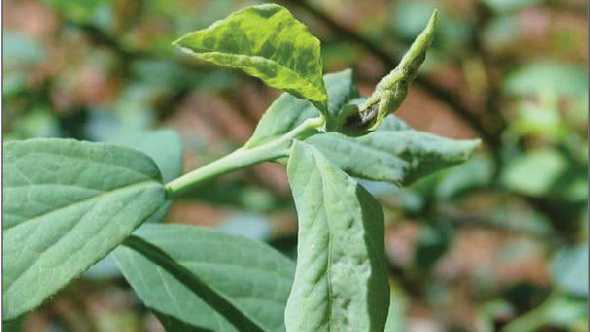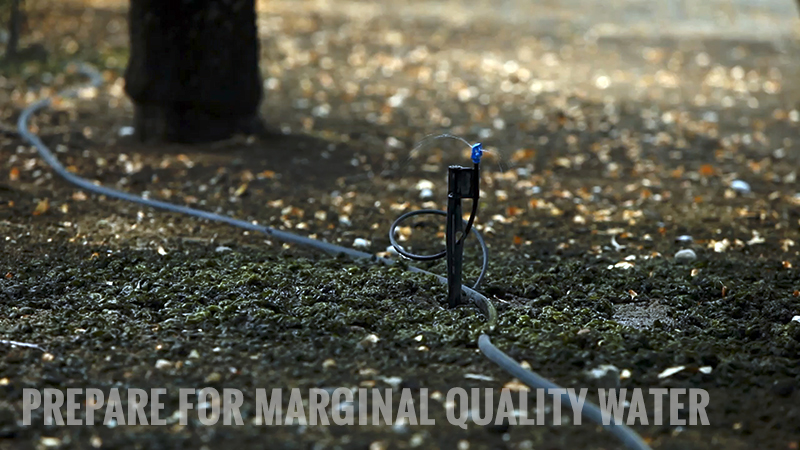Florida Blueberry Growers on High Alert for Gall Midge

An up-close look at an adult female blueberry gall midge. Photo by Oscar E. Liburd
According to an alert sent out by the Florida Blueberry Growers Association (FBGA) to industry stakeholders, local producers are reporting widespread, late-season production loss. Some have recently reported flower bud damage and corresponding fruit loss — in some cases up to 50% on certain cultivars. Among a myriad of factors that might be responsible for the observed damage, signs are pointing to the notorious blueberry gall midge as a prime suspect.
The field reports, gathered and provided by UF/IFAS Blueberry Extension Coordinator Doug Phillips, have focused so far on the varieties ‘Emerald,’ ‘Farthing,’ and ‘Meadowlark,’ although other cultivars also might have been affected to some degree. Phillips, a recent graduate of Dr. Patricio Munoz’s Blueberry Breeding & Genomics Program, notes: “There could be multiple reasons for flower bud damage and the resulting fruit loss, including hydrogen cyanamide and freeze damage. However, in several cases this year it is believed that this type of damage has been caused by blueberry gall midge.”
High populations of blueberry gall midge can result in significant flower bud injury and reduce fruit set and yield, Phillips points out. The following are his scouting tips for this pest.

Blueberry gall midge bud damage
Photo by Craig Roubos
- Females lay eggs in floral and vegetative buds just after bud swell. Gall midge larvae then feed on developing leaf and floral buds. Affected floral buds develop a dry, shriveled appearance and will often disintegrate.

Symptoms of blueberry gall midge leaf damage
Photo by Craig Roubos
- Damaged leaf buds are characterized by misshapen leaves and blackened and distorted shoot tips. When the terminal bud on a shoot is injured or killed, shoot elongation growth may be inhibited with excessive later branching occurring just below the damage terminal bud. Weather may impact the density of gall midge populations, with warmer temperatures (greater than 60°F) resulting in early emergence. Furthermore, re-infestation of previously infested areas is common if management action is not taken when gall midge injury is observed.
The FBGA is encouraging growers take a brief survey to help inform retailers how much of the crop to expect and maintain price stability.
Initial survey feedback confirmed considerable damage reported from a chunk of the state’s acres, according to a FBGA crop loss survey update. “Despite the crop damage, 2018 is still looking like it will be a decent production year for our state compared to years in the recent past,” stated FBGA President Brittany Lee in the survey update.









